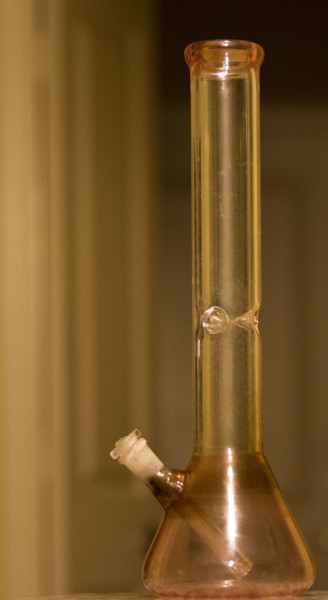Pot. Weed. Mary Jane. Ganja. Dope. Grass. Reefer. Herb. Bud.
No matter the street name, marijuana is rapidly becoming a huge business across the country, with $5.7 billion in sales over the last year.
In Arizona, a recreational marijuana legalization campaign is reaching its goal to appear on the November ballot.

The current laws in Arizona make marijuana legal only for medicinal purposes, and it must be prescribed by a doctor.
Proponents of the ballot initiative need to collect about 150,000 legitimate signatures by July in order for it to appear on the ballot. Almost 99 percent of them have already been collected, according to Jeff Schaeffer, executive director of PARC Dispensary in Phoenix.
The Arizona Regulation and Taxation of Marijuana Act would legalize the possession and consumption of marijuana by people who are 21 and older, permit people to grow up to six plants in their homes and establish a 15 percent tax on retail marijuana sales. Revenue from the tax will be allocated to public health and education.
In a sense, the initiative will legalize marijuana similar to alcohol.
Ryan Hurley, the official attorney for the campaign, said that from the 15 percent retail tax, 20 percent of the revenue would go to the Department of Health and the other 80 percent to the Department of Education.
The revenue will not be included in the state’s general fund to make sure it would not be spent for other purposes.
How much revenue can Arizona expect to see? “In the first fiscal year, there are estimates from $42 million to $100 million,” said Hurley.
By 2020, both medical and recreational sales across the country are projected to reach $22.8 billion, according to “The State of Legal Marijuana Markets” report from the ArcView Group, an Oakland, California-based investment network for cannabis start-ups.
In terms of laws and regulating marijuana use, driving while under the influence would remain illegal, as well as consuming in public and distributing to anyone under 21, much like how alcohol is regulated in the state.
Recreational marijuana is fully legal in Alaska, Colorado, Oregon, Washington and the District of Columbia, and they are reaping serious benefits.
According to Drug Policy Alliance, a national advocacy leader of drug law reform, since the first retail marijuana stores opened in Colorado in January 2014, the state has seen a decrease in crime rates, a decrease in traffic fatalities and an increase in jobs.
In the first 11 months of 2014, overall property crime decreased by 8.9 percent, burglaries by 9.5 percent, and violent crimes by 2.2 percent. In that same frame, 16,000 people were licensed to work in the marijuana industry.
The Colorado Department of Revenue reported that within the first ten months of legalization, revenue from the recreational marijuana sales tax amounted to $40.9 million.
And that number doesn’t even include revenue from medical marijuana sales.
Those numbers haven’t stopped growing since.
But if Arizona’s young voters don’t make it to the polls on November 8, the initiative may not make it. “We have to get the young vote out,” Schaeffer said. “If people between 18 and 30 go out and vote, it should pass easily.”
And Arizona youth may benefit from legalization. The state is one of the worst in the nation for education spending. EdWeek, a respected education journal, ranked Arizona 47th out of 50 states for state government funding for education.
“It’s pretty clear that Tucson as a whole has pretty poor school districts,” said William Elliott, the operations director at Earth’s Healing Dispensary in South Tucson. “So we definitely could use some money to maybe hire better faculty or incorporate new programs.”
Elliott thinks people would be shocked by how much money marijuana dispensaries would earn. “And to dump it into something we absolutely need is the best thing we can do,” he said.
The campaign to regulate marijuana like alcohol is in full swing, and now Arizona’s future of recreational pot lies in the hands of voters.
Jacquelyn Silverman is a reporter for El Independiente, a service of the School of Journalism at the University of Arizona. Contact her at [email protected]. For high resolution photos click here


